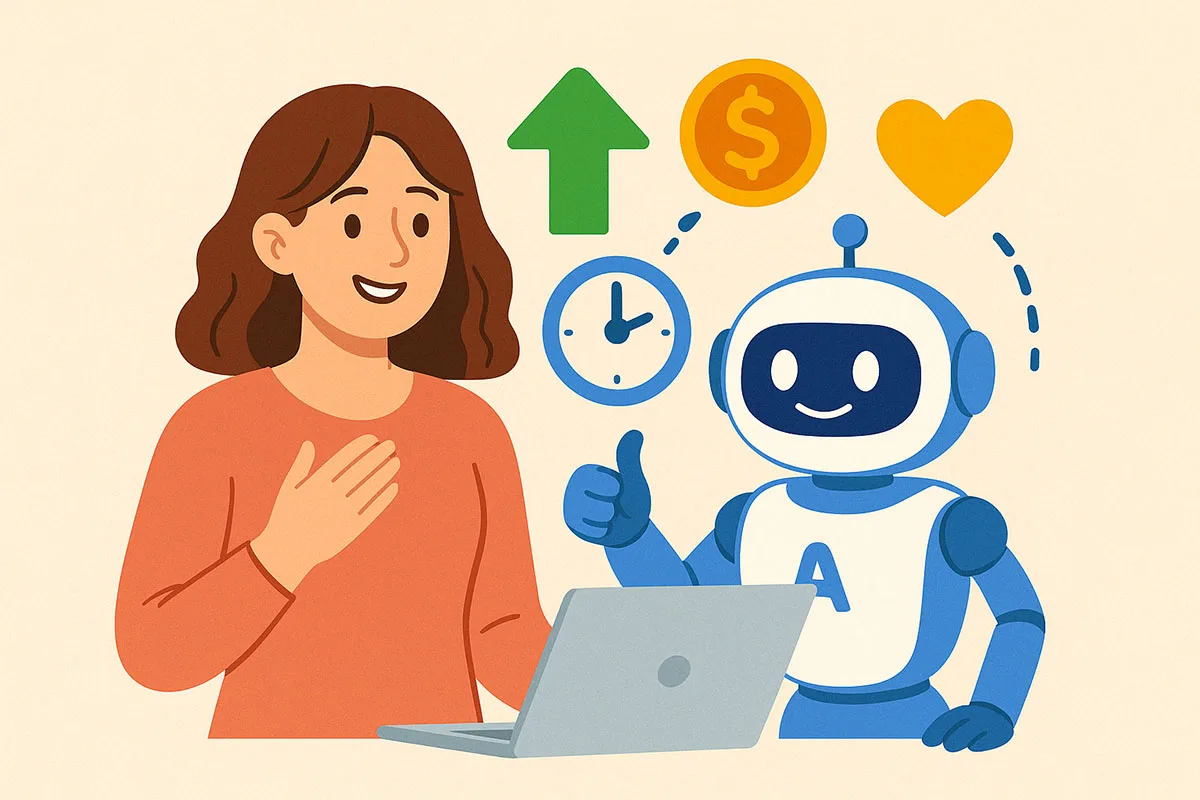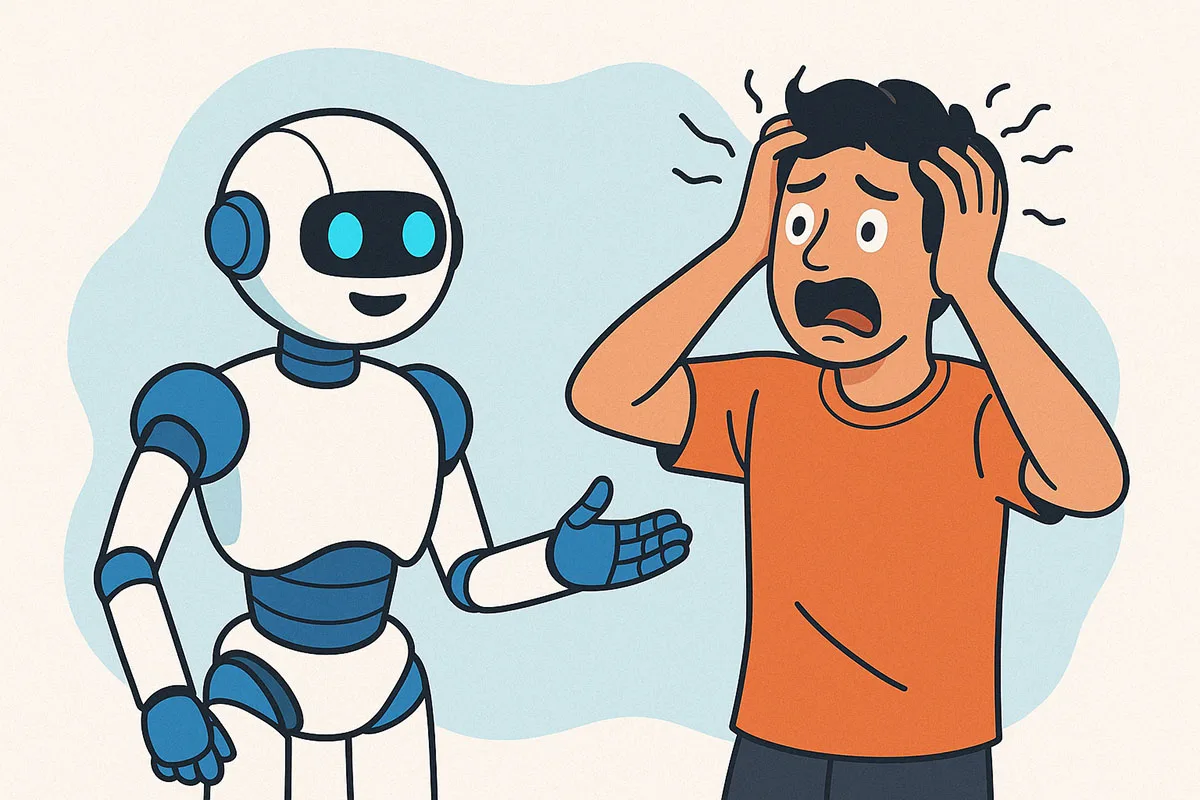AI for Beginners: What Is AI, Really? A Beginner-Friendly Guide for Everyday People

Welcome to AI for Beginners: Your Friendly Introduction to Artificial Intelligence
Artificial Intelligence (AI) is everywhere—from the personalized recommendations on your Netflix account to the voice assistant on your phone. But what is AI, really? If you’ve ever felt overwhelmed by the technical jargon, then you’ve come to the right place. This guide is made just for first-time AI users and curious readers who want to learn about AI without needing a tech degree.
Whether you’re a student, a working parent, a small business owner, or just someone eager to keep up with the times, this AI for beginners guide will walk you through AI in the simplest way possible. No code, no buzzwords—just real talk.
Here at Prodigy Productivity, we believe AI is not just for tech experts. It’s a powerful tool that everyday people can use to become more efficient, creative, and confident in their day-to-day lives.
What Is AI, Really?

Understanding the Basics of Artificial Intelligence
Let’s keep it simple: Artificial Intelligence (AI) refers to machines or computer systems that can mimic human intelligence. This includes things like learning, reasoning, problem-solving, language understanding, and even creativity.
Think of AI as a very smart assistant that processes a lot of information, finds patterns, and gives helpful responses or makes decisions based on that data.
For example, if you feed an AI thousands of photos of cats, it can learn to recognize cats in new photos. Over time, the more data it gets, the better it becomes at predicting or responding accurately. This learning process is what makes AI different from just a simple computer program.
Why You Should Care About AI (Even If You’re Not a Techie)
AI for Beginners Means Real-Life Benefits
AI isn’t just for Silicon Valley engineers or massive corporations. It’s showing up in ways that help you every single day:
- Smart assistants like Siri or Alexa set your alarms, play music, and answer random questions.
- Navigation apps like Google Maps use AI to give you real-time traffic updates.
- Streaming platforms recommend shows based on your past viewing habits.
- Email filters sort your inbox and keep spam at bay.
- Smart home devices automate your lights, thermostats, and security.
AI for beginners means learning how to harness these tools to make your life easier, more productive, and even a little more fun.
Common Types of AI You Already Use
1. Narrow AI
This is the most common type of AI, and it’s designed to perform a specific task. Think of Spotify suggesting your next favorite song or your phone unlocking with facial recognition. These AIs are super focused, like an expert at one thing.
2. Generative AI
You’ve probably heard of tools like ChatGPT, DALL·E, or Gemini. These are part of the generative AI family—programs that can write, draw, or create content based on prompts you give them. They use models trained on massive amounts of data to generate new text, images, or even music. This collection of productivity tools is a great start in grasping AI for beginners.
3. Machine Learning (ML)
ML is a subset of AI where computers “learn” from data. For instance, your email app learns to send certain types of messages to your spam folder based on your behavior. The more it learns, the better it performs.
Debunking AI Myths (Don’t Worry, Robots Aren’t Taking Over)

Myth 1: AI Is Only for Tech Experts
Nope. AI for beginners is a thing. Thanks to user-friendly platforms, you can start using AI tools with zero technical background. Sites like Prodigy Productivity are here to walk you through it in plain English.
Myth 2: AI Will Take Everyone’s Jobs
While AI will change how we work, it also creates new roles and helps us do existing ones better. It’s more about enhancement than replacement. For example, AI can automate repetitive tasks so humans can focus on creativity, strategy, and connection.
Myth 3: AI Has a Mind of Its Own
AI doesn’t “think” like humans. It doesn’t have emotions, values, or a conscience. It’s powerful, yes, but it follows patterns in the data it’s trained on. As you begin your journey with AI for beginners, it is important to know that AI can’t make moral decisions or form intentions – only simulate what those might look like. It can even make mistakes, such as when it makes hallucinations or confabulates.
How You Can Start Using AI Today (Yes, Today!)
You don’t need to spend a dime or install complicated software to get started with AI for beginners. Here are some beginner-friendly tools you can try right now:
- ChatGPT: Ask questions, generate ideas, or even write emails.
- Canva’s Magic Design: Create stunning graphics with AI-assisted design.
- Grammarly: Use AI to fix grammar and improve your writing.
- Google Lens: Point your camera at objects and let AI identify them.
- Notion AI: Use AI to help you plan, organize, and write better notes.
- Zoom AI Companion: Get AI summaries and action items after meetings.
All these tools are designed with simplicity in mind, and AI for beginners. Just explore and play around. The more you experiment, the more confident you’ll become.
AI for Productivity: A Game-Changer for Everyday Life

Organize Your Life
From scheduling apps to virtual assistants, AI helps you manage your time more effectively. Think of AI as your personal digital planner—without the hourly fee.
Work Smarter, Not Harder
Freelancers, students, and entrepreneurs are using AI to write reports, brainstorm ideas, analyze data, and even automate social media posts. AI helps reduce decision fatigue, so you can focus on what matters most.
H3: Learn Faster
Language apps powered by AI, like Duolingo, adapt to your pace and learning style. You can also use AI tools to summarize books, translate content, or help understand complex topics like science or finance.
Staying Responsible with AI Use
With great power comes great responsibility. As you dive into AI for beginners, here are a few things to keep in mind:
- Check your sources: AI tools like ChatGPT can sometimes “hallucinate” or make up facts. Always verify important information.
- Protect your privacy: Don’t share sensitive personal data with any AI system.
- Use ethically: Don’t use AI to plagiarize, mislead, or cheat. It’s meant to empower, not deceive.
Responsible use is part of being a thoughtful digital citizen. AI can be an incredible partner, as long as we stay in the driver’s seat.
Prodigy Productivity’s Take on AI for Beginners
At Prodigy Productivity, I’m passionate about making tech tools approachable, especially with AI for beginners in mind. You don’t need to understand machine learning algorithms or data science to benefit from AI. What you need is a mindset of curiosity and a willingness to explore.
My team and I create guides, how-tos, and real-world examples to help you use AI for good—to improve your productivity, support your goals, and save you time in the process. Whether you’re a working parent, a student trying to juggle classes, or a side hustler building your dream, AI has something to offer you.
AI Is for You, Too
Artificial Intelligence isn’t a future fantasy—it’s a present-day reality. And guess what? It’s not just for programmers, CEOs, or tech geeks. It’s for beginners like you!
AI for beginners is about empowerment. It’s about discovering tools that make your day smoother, your goals more attainable, and your life more balanced. You don’t need to master AI—you just need to start using it in ways that support your unique needs.
So go ahead, open a new tab, try one of the tools we mentioned, and take your first step. The world of AI is waiting—and it’s a lot more friendly than you think.


